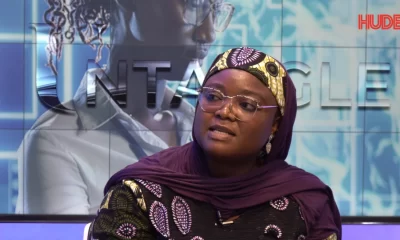News
Floodwaters Engulf Nigeria, Leaving Many in Despair

The usually tranquil landscape of Borno state in Nigeria has been transformed into a scene of utter devastation with recent floods leaving trails of destruction, displacing millions and posing significant challenges to residents, infrastructure and wildlife. The once thriving communities now lie submerged with homes, farmlands, and livelihoods swept away by the relentless waters.
The flood has wrought havoc, with no definite figure to measure the level of damage as different media outlets report contrasting numbers of casualties. The BBC news report that a staggering 2 million people have been impacted by the disaster, forced to leave their homes and seek shelter elsewhere, while Al Jazeera reports a slightly lower figure of 1 million casualties. Confusion spiraled as the state governor, and one of his aides were referenced with giving these contrasting figures respectively. Local media outlets have also reported the governor as saying that the actual number of casualties is still unknown. However, in what seems to be a more circulating estimate, The United Nations Office for the Coordination of Humanitarian Affairs (OCHA) reports the number of affected persons to stand at 414,000, with 37 confirmed deaths.
Regardless of the unsure number of casualties, the floods have evidently usurped the sanity of people affected. These floods have been attributed to climate change that has ushered in heavy rainfall, thereby leading to the overflow of the Alau Dam in the state. This disaster has raised varying concerns about the hindered access countless families have to basic necessities like clean water, food, shelter and even healthcare and the looming threats to security as there are reports of wild animals roaming free from Maiduguri zoo breach, and about 270 inmates escaping from the Maiduguri maximum prison.
In response to the crisis, humanitarian organization, including UN Agencies and NGO’s in collaboration with the state government have rallied to provide relief. Emergency shelter, food distribution, health services, is among the critical interventions underway.
But are these interventions good enough to save the day?
Indeed relief may come to Borno state and its residence, but it may not be as good as a situation where earlier warnings were heeded to and approached strategically to help curb its effect. Thus the stressed importance of addressing the root causes of the flooding by experts. The World Bank recommends upgrading infrastructure, including drainage systems, dams and water management infrastructure. The United Nations Development Programme (UNDP) advocates for flood-risk mapping to constantly identify vulnerable areas. The Nigerian National Emergency Management Agency (NEMA) has a voice in this also as it emphasizes the need for effective early warning systems, to avoid any future occurrences
The other side of this coin will be to highlight the responsibilities the people have to play in ensuring that infrastructure provided by the government is properly used, through proper garbage disposal, and basic sanitation and hygiene practices that promote a safe and secure environment for everyone.
As the people of Borno state navigate this challenging time, with numerous donations from international and local organizations, and the countless goodwill visits from dignitaries from around the country, it is necessary to state, that taking a look into, and implementing some of these recommendations will be crucial to mitigating the effects of future floods and ensuring a resilient recovery.
The floods have reminded the people of Borno state and Nigeria as a whole, of the fragility of human existence in the face of natural disasters, and as the waters recede, the true extent of the damage will become clear. But one thing is certain I believe; the resilience and determination of the people of Borno state will ultimately prevail.













